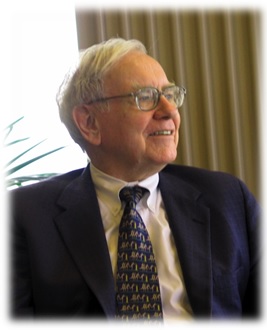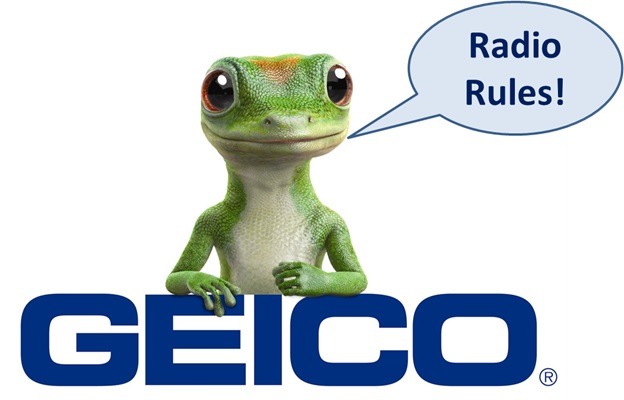We continue to hear from people in the media and advertising communities bloviate about how “no one listens to the radio anymore.” And some of this talk is reinforced in casual conversations at middle school football games, on airplanes, and pretty much everywhere you go. Like anything else, the more people hear it, the more they believe it’s true.
But the fact is, everyone’s research – from Nielsen’s to Edison’s “Share of Ear” studies – continues to reaffirm that radio is very much a part of most people’s lives. Yes, it is being challenged by any number of new platforms and services. Yet, the data continues to show that while bolstered by convenience, proximity, and habit, there are a lot more people listening to over- the-air radio than streams.
the-air radio than streams.
But somehow, radio continues to be a tough sell in some circles. As Paul Brenner told us during our interview with him for “Radio’s Most Innovative,” the hesitancy on the part of some telecommunication companies to get on board the NextRadio bandwagon is due to their “idea that people don’t care about radio.”
Oftentimes, it’s this anecdotal evidence that scuttles conversations, lowering radio to “has-been” status, well behind satellite radio, Pandora, and Spotify. So even though the data speak volumes about steady radio listenership, people believe what they want to believe. Yet, as we’ve discussed numerous times in this blog, a good story trumps data every time.
So what if I told you that broadcast radio had a pretty good story of its own – a compelling narrative that isn’t about what someone’s 13 year-old is doing, or the guy in the next cubicle, or the gang at the tailgate party.
And what if I told you that there’s an incredibly powerful stamp of approval for radio that comes from perhaps the most successful businessman alive today, a person who millions rely on for investment direction, guidance, and advice.
You know him as Warren Buffett, a.k.a. “The Oracle of Omaha.”
Let’s face it – if you had some key investment questions about your future, your savings, your investment, or your retirement, would there be anyone better than Warren Buffett to hold your hand, look you in the eye, and give you his sage advice? Like the E.F. Hutton commercials of old, when Buffett speaks, people stop talking and they listen to what he has to say.
Warren Buffett is a believer in radio. Now I haven’t heard him say those words in an interview or in print, but here’s a guy who watches his financial assets very carefully. You don’t become worth billions and billions by wasting your dollars, especially on the most important investments in your portfolio. And his actions suggest an intrinsic belief in the power of broadcast radio.
Think about it this way: GEICO is near and dear to Warren Buffett – and this insurance giant is consistently one of radio’s biggest advertisers. That suggests that in order to maintain and grow the best brand in the highly competitive insurance sector, Warren Buffett is committing a substantial portion of his marketing dollars to AM and FM stations.
Geico is an important asset in the Berkshire Hathaway mix, but did you know that Buffett’s connection to the company isn’t a recent phenomenon – it dates back to 1950 when “The Oracle of Omaha” was a student. According to the Motley Fool, Buffett was being mentored by Ben Graham, chairman of the Government Employees Insurance Company – better known as GEICO. This is how and when Buffett learned the value of insurance, and begin investing in the company. And later with Berkshire Hathaway, Buffett began to acquire control of GEICO. In 2013, that brand, fronted by the famous green gecko, delivered more than $1 billion in operating profit. As Buffett says, “When I count my blessings, I count GEICO twice.”
GEICO spends a lot of its marketing money in broadcast because Buffett learned long ago that it works.
Yes, GEICO is all over the tube, but they are often among the leading advertisers on the AM and FM airwaves. Last week, GEICO was radio’s top advertiser according to Media Monitors, airing more than 44,000 commercials. In the second position was AutoZone with 28,000 radio ads.
And here’s a stat that’s a bit bigger: in 2014, GEICO ran approximately 2 million radio spots, making it the largest advertiser in the industry.
So when someone tries to tell you that no one listens to radio anymore because they’re all on Pandora or watching YouTube videos; or that the smart money has moved to search and satellite radio, you can go back to the Radio Playbook, quoting the tried and true 93% number or you can tell them how radio always comes through in emergencies. Or you can tell them how studies are being done that show a connection between hearing a radio spot and consumers subsequently buying a product or visiting a store.
Or perhaps you could use a more convincing strategy by reminding them that the fourth richest person in the world – Warren Buffett ($58.2 billion in 2014) – commits millions of dollars every year for one of his most high profile holdings to radio broadcasting.
GEICO and Warren Buffett give our reps more than 2 million answers to the question, “Why radio?”
So is the “Oracle of Omaha” the richest man in the room because he’s the smartest man? Or is it that he’s the smartest man because he’s the richest man?
Yes. And advertisers and buyers would be wise to take his sage advice.
- What To Do If Your Radio Station Goes Through A Midlife Crisis - April 25, 2025
- A 2020 Lesson?It Could All Be Gone In A Flash - April 24, 2025
- How AI Can Give Radio Personalities More…PERSONALITY - April 23, 2025





Thanks Fred! Great story. So true. “Old” radio, listeners both over & under 45 and advertisers need to be reminded how impressive & effective our “wireless, everywhere & free” broadcast radio service is. Above all, the owners can’t let the content slip!! Best, Clark http://www.broadcastideas.com
Thanks much, Clark.